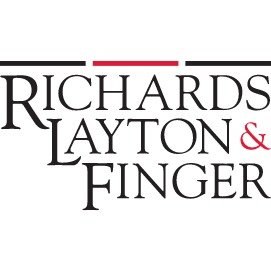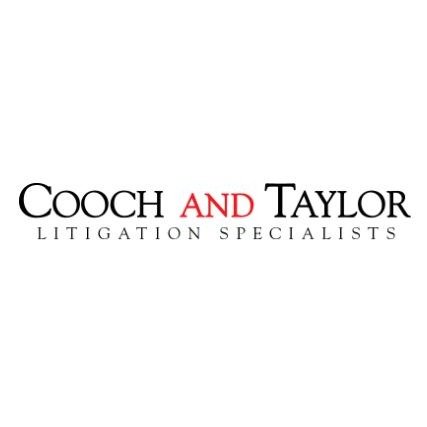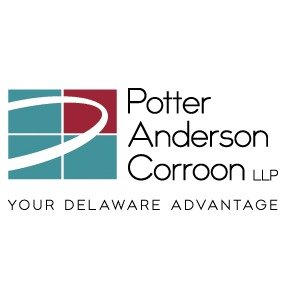Best Financial Services Regulation Lawyers in Wilmington
Share your needs with us, get contacted by law firms.
Free. Takes 2 min.
List of the best lawyers in Wilmington, United States
About Financial Services Regulation Law in Wilmington, United States
Financial Services Regulation in Wilmington, United States, is a critical aspect of ensuring that financial institutions operate within the boundaries of the law. Wilmington, known for its robust corporate environment, is governed by both federal and state laws that oversee banking, securities, insurance, and other financial services industries. Delaware, historically known for its business-friendly laws, provides a strategic regulatory environment for financial services that balance consumer protection with corporate interests.
Why You May Need a Lawyer
There are numerous reasons why individuals or businesses might need a lawyer specializing in Financial Services Regulation:
- Understanding and navigating complex federal and state regulations can be challenging without expert help.
- Compliance issues may arise, requiring professional guidance to avoid penalties or legal action.
- Disputes with financial institutions, such as banks or insurance companies, often require an experienced lawyer to mediate or litigate.
- If setting up a new financial services company, legal assistance is crucial to ensure all licensing and regulatory requirements are met.
- Mergers, acquisitions, or restructuring within the financial sector often involve intricate regulatory considerations best managed by a legal expert.
Local Laws Overview
Wilmington, as part of Delaware, is subject to the state's unique legal landscape for financial services. Key aspects include:
- Delaware’s General Corporation Law, which provides a flexible and efficient framework for corporate governance.
- Stringent data protection and privacy regulations that financial institutions must adhere to.
- Anti-money laundering (AML) laws and regulations that require rigorous reporting and compliance by financial entities.
- Consumer protection laws aimed at safeguarding individuals from unfair financial practices.
- Financial disclosure regulations that promote transparency within the financial services industry.
Frequently Asked Questions
What is financial services regulation?
Financial services regulation involves laws and regulations governing financial institutions such as banks, credit unions, insurance companies, and investment firms to ensure their stability, integrity, and fairness.
How does Delaware's corporate law affect financial services regulation?
Delaware is known for its progressive corporate laws, which provide a business-friendly environment. These laws facilitate effective corporate governance and compliance, impacting how financial institutions operate within the state.
What are some compliance requirements for financial institutions in Wilmington?
Compliance requirements include adhering to federal laws like the Bank Secrecy Act, state regulations on consumer protection, AML protocols, and financial disclosure obligations.
What should I do if I suspect a violation of financial regulations?
If you suspect a violation, it's advisable to consult a legal expert who specializes in financial services regulation to investigate and take the necessary legal actions.
What role does the Delaware Division of Financial Regulation play?
The Division oversees and enforces state laws regulating financial institutions, consumer protection, and licensing of financial service providers in Delaware.
Can financial regulation laws affect my personal banking in Wilmington?
Yes, financial regulations ensure personal banking services are safe, fair, and transparent, protecting consumers against fraud and predatory practices.
Why are anti-money laundering regulations important in Wilmington?
AML regulations are essential to prevent financial crimes, safeguarding the integrity of the financial system against misuse for illegal activities.
How can I ensure my business complies with financial regulations?
Regular audits, robust internal controls, and seeking legal guidance can help ensure compliance with financial regulations.
What is the process for reporting a financial fraud in Wilmington?
Report financial fraud to the local law enforcement or the Delaware Division of Financial Regulation. Consulting with a lawyer can also guide you through the reporting process.
Are there local resources for understanding financial services regulation?
Yes, the Delaware Division of Financial Regulation, local legal firms specializing in financial law, and various governmental websites offer resources for understanding financial services regulation.
Additional Resources
- Delaware Division of Financial Regulation: Provides oversight and resources related to financial services regulation within Delaware.
- U.S. Securities and Exchange Commission (SEC): A federal agency that oversees security markets and protects investors.
- Consumer Financial Protection Bureau (CFPB): A government agency that ensures fair treatment for consumers in the arena of financial services.
- Delaware State Bar Association: Offers resources for finding qualified attorneys specializing in financial services regulation.
Next Steps
If you need legal assistance in Financial Services Regulation in Wilmington, consider these steps:
1. Identify the specific legal issue or question you have.
2. Research and shortlist legal experts or firms specializing in financial services regulation in Wilmington.
3. Schedule consultations to discuss your case and evaluate their approach and expertise.
4. Review fee structures and proposals before deciding on legal representation.
5. Stay informed and involved in the legal process to ensure compliance and resolution of your matters.
Lawzana helps you find the best lawyers and law firms in Wilmington through a curated and pre-screened list of qualified legal professionals. Our platform offers rankings and detailed profiles of attorneys and law firms, allowing you to compare based on practice areas, including Financial Services Regulation, experience, and client feedback.
Each profile includes a description of the firm's areas of practice, client reviews, team members and partners, year of establishment, spoken languages, office locations, contact information, social media presence, and any published articles or resources. Most firms on our platform speak English and are experienced in both local and international legal matters.
Get a quote from top-rated law firms in Wilmington, United States — quickly, securely, and without unnecessary hassle.
Disclaimer:
The information provided on this page is for general informational purposes only and does not constitute legal advice. While we strive to ensure the accuracy and relevance of the content, legal information may change over time, and interpretations of the law can vary. You should always consult with a qualified legal professional for advice specific to your situation.
We disclaim all liability for actions taken or not taken based on the content of this page. If you believe any information is incorrect or outdated, please contact us, and we will review and update it where appropriate.

















